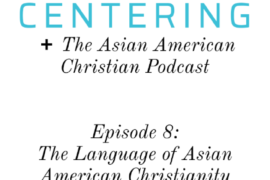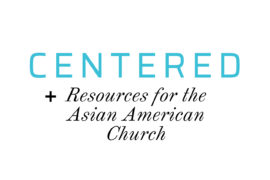 “It’s better to give than to receive” – how often have you heard this phrase quoted to exemplify “the Christmas spirit”?
“It’s better to give than to receive” – how often have you heard this phrase quoted to exemplify “the Christmas spirit”?
In a culture obsessed with money and self-image, it can seem radically counter-cultural to focus on giving gifts and serving the poor. What could be more right than to give generously to those around us, especially those whose needs are going unmet?
Now, care for those around us is certainly not a bad habit, especially when it brings life or hope to someone in need. But we can quickly fall into trouble if we think that “the meaning of Christmas” can be found in people giving each other things!
“we fall into trouble if we think that Christmas can be found in material transactions between human beings”
Christmas isn’t about people providing for another, but instead a uniquely divine act of grace: God sending the Son, Jesus Christ, to earth to redeem a hopelessly-lost humanity. It is a story of heavenly providence and the high point of a history of creation, love, rejection, and redemption.
The story of Christmas challenges us in many ways, but our first question should be: how can I really receive Christ?
Yes, the act of welcoming Christ into our lives will lead to worship and obedience, which includes acts of charity, grace, and kindness. But if we jump too quickly to how can I give?, we miss the richness of exploring the question: what am I receiving?
It is extremely easy to keep operating in a system that is human-centered and materially oriented, just change how we see ourselves: instead of being “the receiver”, we decide that we’ll be “the givers”. But doing this actually overlooks the greater transformation that God wants to take us through: not only changing our role, but bringing us into an entirely new system!
In the holiday season, it is right to want to serve the poor and give gifts. But as we do so, let’s ask ourselves: are we doing it in a way that’s basically secular, seeing generosity as something that’s good on its own? Or are we making ourselves into God, providing for others because we’re trying to “save” them?
Or are we giving as an act of worship, imitating Christ and caring for Him in the people around us?
We can’t give what we don’t have – and so, to share Christ with a world that desperately needs Him, let’s remember to “fix [our] eyes on Jesus, the maker and perfecter of faith.” (Hebrews 12:2)



38 Comments
Pingback: RUGER REVOLVERS
Pingback: เรียนต่อจีน
Pingback: รับสร้างบ้าน
Pingback: Phim Tinh Cam
Pingback: cake 1g carts
Pingback: ppf folie
Pingback: เว็บรวมเกมสล็อต
Pingback: poker online
Pingback: ป้ายแท็ก
Pingback: gaming pc
Pingback: stedentrip
Pingback: สล็อตแตกง่ายไม่มีขั้นต่ำ
Pingback: k2 e liquid for sale
Pingback: rich89bet
Pingback: เว็บสล็อต แจ็คพอตแตกง่าย เดิมพันได้กำไรทุกเวลา
Pingback: นักสืบ
Pingback: dark168
Pingback: slot99
Pingback: หวยลาว ออนไลน์ คืออะไร ?
Pingback: เช่าที่เก็บของ
Pingback: ปั้มฟอล
Pingback: จองตั๋วรถทัวร์
Pingback: lotto888
Pingback: สรุปแล้ว เว็บสล็อตที่คนไทยเล่น อันดับ 1
Pingback: ยาระบายมะขามแขก
Pingback: http://aviatorwebsiteindia.org/
Pingback: Read Full Report
Pingback: รับผลิตสปริง
Pingback: Online roulette games
Pingback: PROMOTION Neptuxe
Pingback: essentials
Pingback: DeepBLOK ระบบสมาชิก
Pingback: mim66
Pingback: หารค่าข้าว
Pingback: ufabet789
Pingback: Fulfillment
Pingback: online casino google pay
Pingback: โคมไฟ